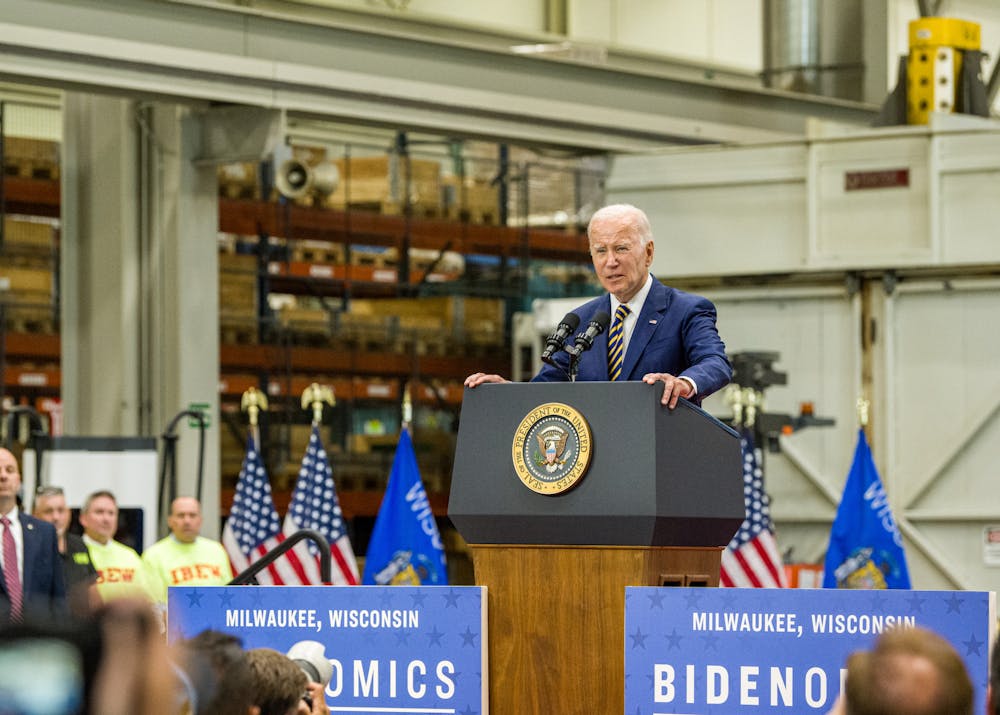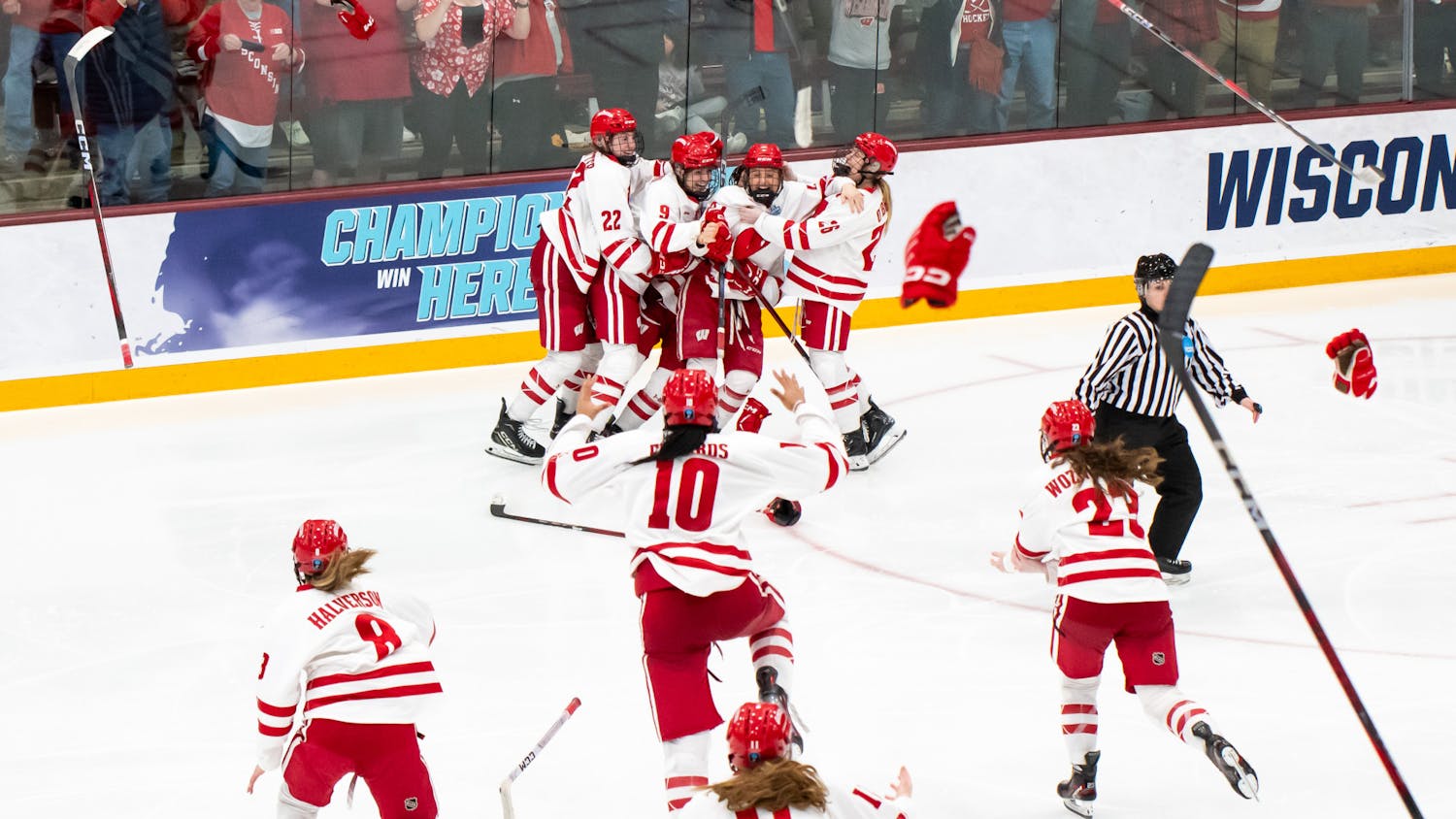Bucky must be sick of the limelight as we head into 2024.
UW-Madison and the UW System made national news multiple times in 2023 as university leaders were dropped into a political pressure cooker. Free speech debates again embroiled campus after multiple high-profile incidents of racism, antisemitism and transphobia.
And if that wasn’t enough, a war halfway across the globe brought hurt, fear and loss to many students on campus, many of whom felt isolated as they walked to class while their families huddled in bomb shelters.
Those storylines are bound to continue into the new year, along with others brewing under the surface.
With that, here are four UW-Madison news stories to watch in 2024.
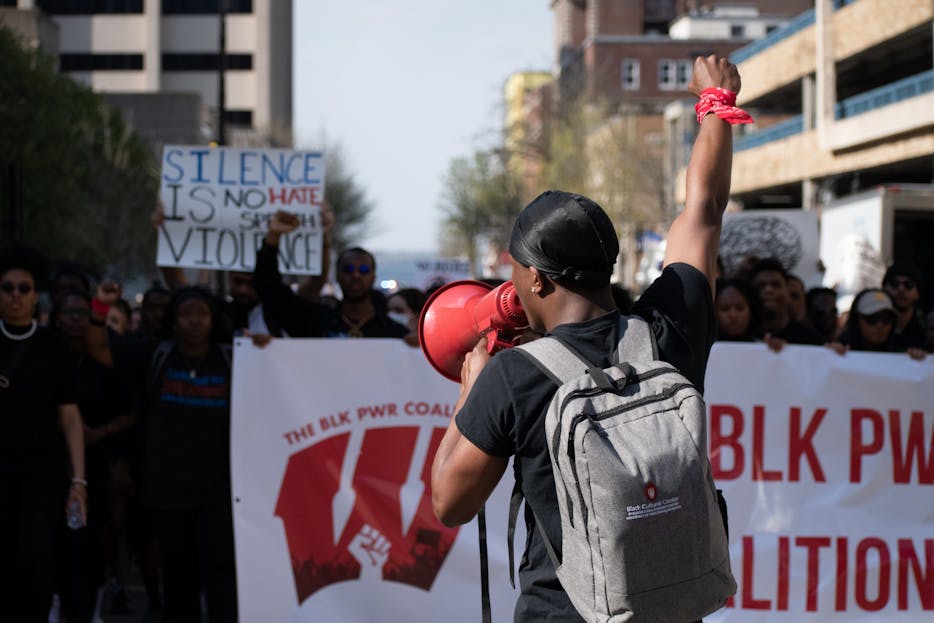
One of the leaders of the Blk Pwr Coalition guiding the protest down N Lake Street
How will a deal with Republicans affect diversity at UW?
UW leaders approved a deal with Republicans in December to cap diversity positions in exchange for building project money and pay raises for more than 30,000 employees systemwide.
There are other components to the deal, including a new conservative faculty chair position at UW-Madison and an abrupt halt to a hiring program that brought diverse professors to UW’s flagship campus.
However, the deal’s core — compromises on diversity initiatives to free funds withheld by Republicans — ignited widespread uproar and exposed rare divisions on the university’s Board of Regents, which first rejected the deal before approving it days later.
University leaders defended the compromise as a less-than-ideal but necessary part of doing business in a politically polarized state. For some students, staff and faculty, especially those of color, it was another broken promise from UW leaders who promised to defend diversity months earlier.
So, what happens next? UW employees had their pay raises approved in December, and other funds from the deal are expected in January.
Yet, back at UW-Madison, hateful acts against marginalized students happened with regularity in 2023.
Some made national news, including a neo-Nazi march up State Street in November and a white student saying racial slurs and violent remarks directed toward Black people in a video posted to social media last May. The second incident sparked days of protests.
What’s more, guest speakers regularly make homophobic, transphobic and racist comments at university-sanctioned events. LGBTQ+ students have been harassed while walking to class, and a survey distributed by UW RecWell in October asked student-athletes if trans women were “real women.”
Chancellor Jennifer Mnookin said she’s committed to building an inclusive campus while acknowledging the university’s constraints, especially regarding free speech. She’s also worked with other administrators to host deliberation dinners and lunches with the chancellor to promote free expression and hear student feedback.
But with affirmative action gone and state lawmakers that saw the UW deal as a “first step” to eliminating all systemwide diversity programs, UW leaders looking to promote diversity are doing so with fewer tools at their disposal.
More: What to know about the UW System funding deal
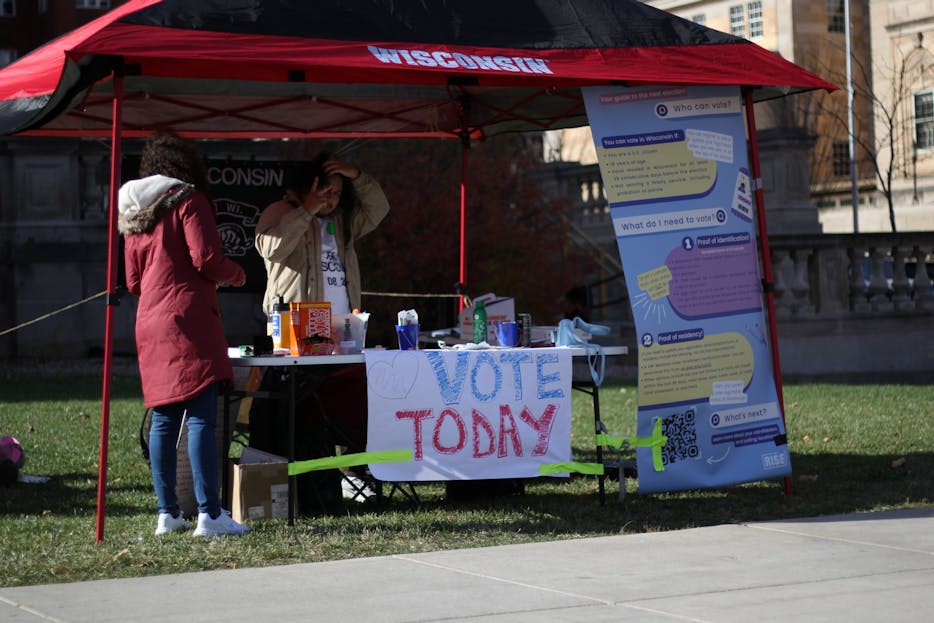
Will young voters be enough to save Joe Biden?
President Joe Biden’s narrow 2020 victory in Wisconsin — a margin of less than 20,000 votes — was an integral part of his triumph over then-President Donald Trump.
Three years later, there are warning signs flashing for Biden less than a year out from the 2024 election, which for now appears destined to be a rematch against Trump.
Biden trails Trump in most swing state polls, and his approval ratings among voters between 18 and 34 years old are sinking. Young people give the economy poor marks and are critical of Biden’s approach to the Israel-Hamas war.
A recent NBC News poll found him trailing Trump by 4 points among young voters, a bloc Biden carried by more than 20 points in 2020. It's an outlier, but Biden's lead among young voters in other surveys is slim.
That’s bad news for Biden nationwide and especially in Wisconsin, a crucial swing state where Democrats rely on wide margins from young voters in liberal strongholds to win high-profile races.
Wisconsin has a deep, progressive grassroots organizing network designed to drum up student turnout for Democratic candidates, a machine poised to roar back to life in 2024.
Is it enough to convince young people to vote the 81-year-old in for a second term? The answer to that question might determine Biden’s fate.
More: In Wisconsin, campus organizers fueled liberals’ Supreme Court victory
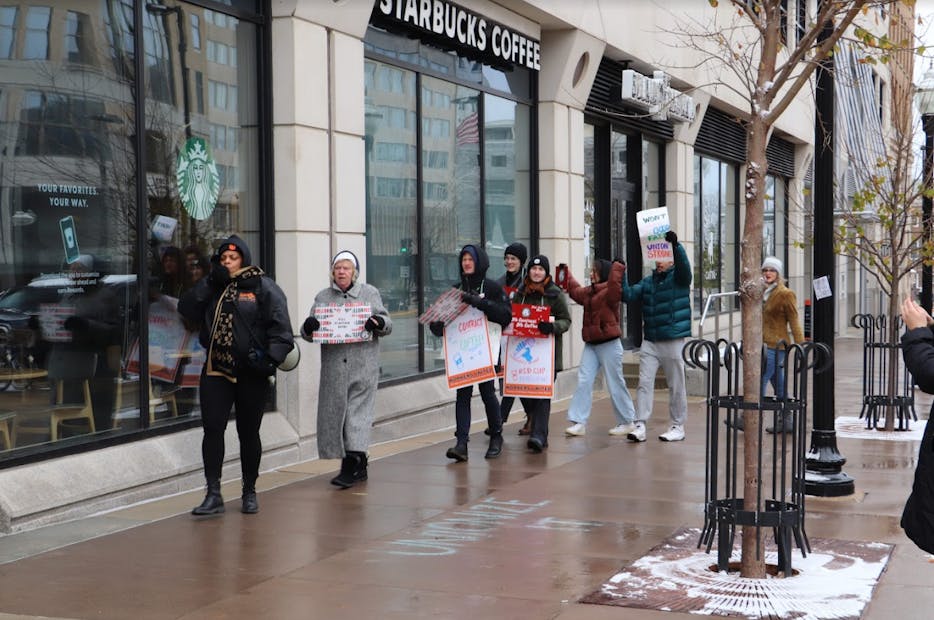
Will organized labor carry momentum into the new year?
Labor unions were regular fixtures on Madison’s front pages last year.
Starbucks workers at the State Street Cafe pleaded with corporate managers for sharp object containers, a quest that led to broken promises and little aid from upper management.
Meanwhile, hundreds of workers at insurance company TruStage (formerly CUNA Mutual Group) and nurses at UW Health spent much of the year advocating for better pay and working conditions.
And in late December, a group of union workers filed a lawsuit against Act 10, a controversial law passed in 2011 that slashed collective bargaining rights for public employees. The group hopes Wisconsin’s new liberal-majority Supreme Court will overturn the law, a white whale for progressives striving to undo Republican former Gov. Scott Walker’s legacy.
Are unions making a comeback? It’s a tricky question. Support for labor unions is at a half-century high, and President Biden has made unions a cornerstone of his re-election campaign.
Yet in 2022, only 7.1% of Wisconsinites were union members, the lowest number recorded since at least 1989. That mirrors federal union membership rates, which have trended downward for decades.
Whether those trends reverse in 2024 depends on multiple political and economic factors. Regardless, we’ll be watching to see if union support translates to more action.
More: Wisconsin’s unions are finding a political foothold after years of decline

Can new high-rises curb Madison’s housing crisis?
Oliv. Verve. Chapter. Atmosphere.
Madison’s random-word generator for luxury high-rises is in full swing, and a handful of new corporate complexes will open their doors to students in the next few years.
That list includes the four one-name wonders above, all of which plan to begin leasing in fall of 2024. Two more high-rises, “Johnson and Broom” and “Johnson and Bassett,” are currently in development with plans to start construction this year.
But Madison’s growing skyline is turning stomachs among lower-income students, many of whom struggle to find housing on a cramped isthmus where some landlords have imposed annual rent hikes of 15% or more since 2021.
Madison’s year-over-year rents rose at the highest rate of any U.S. city between March 2022 and March 2023, and there’s no guarantee new luxury high rises will be enough to reverse that trend.
Without more “missing middle” housing near campus, some students fear the remaining stock of affordable — and oftentimes run-down — housing will dwindle along with the lower-income students who rely on it.
Some small businesses also worry they’ll be forced out. A proposed 12-story building unveiled this summer would demolish Vintage Sports Bar & Grill, a favorite among beer- and brunch-seeking Badgers. Construction on the project could start as early as this spring.
There’s no simple solution to this problem, especially in a city with tough budget decisions on the horizon.
More: 6 Madison student housing projects planned or under construction near campus
Tyler Katzenberger is the former managing editor at The Daily Cardinal. He also served as the state news editor, covering numerous protests, elections, healthcare, business and in-depth stories. He previously interned with The Capital Times, Milwaukee Journal Sentinel and is an incoming POLITICO California intern. Follow him on Twitter at @TylerKatzen.

